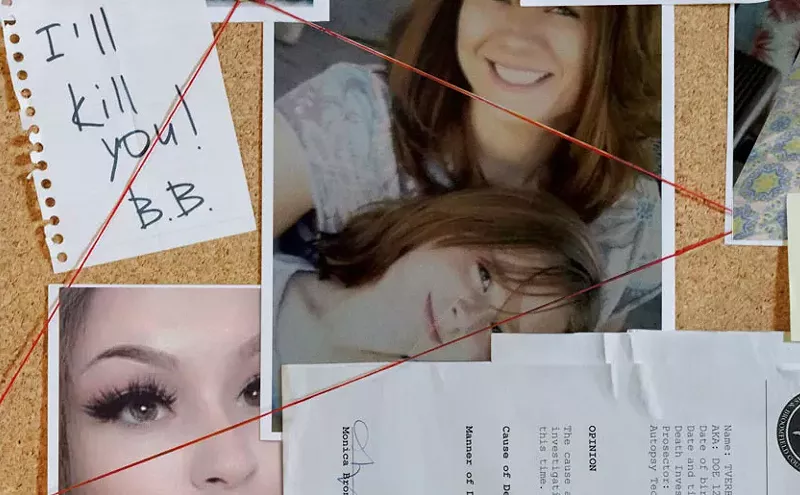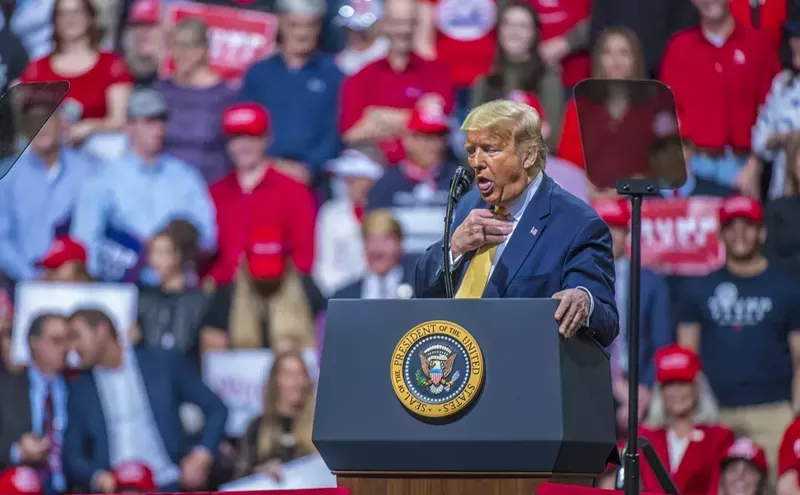Veteran Sean Azzariti offered emotional testimony in favor of the bill and admits to being frustrated that the effort fell short again, just as it did in 2010 and 2012. But while he's disappointed, he has new reasons for hope for a change in the future.
"They had me testify first, which was a little nerve-racking," Azzariti says of his Monday appearance before the House committee on State, Military and Veterans Affairs. "I tried to stay as even-keeled as I possibly could, but when you're testifying about something so personal to you, that you've been working on for years, it's hard not to get choked up."
Azzariti feels some committee members were open to his arguments, while others "were completely close-minded" -- and the latter group won the day. The measure, known as House Bill 14-1364, was voted down by a 6-5 margin.
The result "definitely broke a lot of hearts," Azzariti concedes, but it hasn't dampened his enthusiasm to fight for the issue, which he embraced after PTSD followed him home after military duties overseas.
"I served in the Marine Corps from August 2000 to October 2006," he notes. "My primary duty station was in Jacksonville, North Carolina, but I deployed twice to Iraq -- first in Al-Qa'im and then in Al Asad."I wasn't an infantry guy kicking down doors," he continues, "but I was in charge of security for my base. I did a bunch of convoys from base to base and I was also in charge of making sure that no one coming onto the base was carrying bombs and ammunition." In Al Asad, for instance, "myself and my post were the last line of defense before you got to the airstrip, and with foreign nationals coming through all day, they could easily have gotten to the airfield and done some damage if we weren't there.
"We were constantly being mortared, constantly being shot at," he points out. "It was a very high-stress job."
Upon his return to the States, Azzariti says he "started to exhibit symptoms of PTSD. But when I went to see doctors, they really only treated the symptoms, not the core problem -- and they gave me ridiculous cocktails of medication. At one point, I was prescribed four-to-six milligrams of Xanax a day, four milligrams of Klonopin a day, thirty-to-fifty milligrams of Adderall a day and then a drug called Trazodone to help me sleep. At one point, I was taking thirteen pills a day."
When Azzariti continued to suffer from symptoms of PTSD, compounded by side effects from the medication he was gobbling, he grew concerned.
"I came to the realization that if I kept taking all of that, I wouldn't last too long. I wouldn't be functional. It was sending me down a really bad path."
At that point, Azzariti "started to research how cannabis might be beneficial to my PTSD, and I found a lot of anecdotes from veterans, rape sufferers and a lot of other kinds of people about how cannabis was useful to them." So, in 2008, he applied for a medical marijuana card -- and was turned down, because PTSD isn't deemed a qualifying condition in Colorado.
Continue for more of our interview with veteran Sean Azzariti about PTSD and medical marijuana, including a video. Azzariti eventually was approved for a card on the basis of another issue, chronic nausea, with which he's also afflicted. But he says cannabis did an infinitely better job of addressing his PTSD issues than Xanax and the other prescription meds ever had.
"It really helped me," he says. "It saved my life, really -- made it so I don't have to take any of those pills. It's kind of a miracle."
Despite his improved health, however, Azzariti remained troubled that he couldn't be approved for a card based on PTSD alone -- and his rejection "really set me on the road to advocacy. I was afraid that if other veterans got turned down, they might never find out how much cannabis can help -- and that's not right."
In the years since then, Azzariti has joined the medical marijuana industry -- he's a budtender at Kind Love -- and collaborated with cannabis advocates such as Vicente and Mason Tvert. For instance, he starred in a commercial for Amendment 64; it's on view below.As you know, A64 made it legal for adults 21 and over to buy small amounts of marijuana for recreational purposes. Appropriately, he was the first person in the state to make such a buy on January 1.
In the meantime, Azzariti began working with Representative Jonathan Singer, who sponsored House Bill 14-1364. Although a similar measure was rejected in 2010, and the Colorado Department of Public Health and Environment twice rejected petitions to add PTSD to the treatable-conditions list, he says "there was a lot of optimism" that the bill would become law "up until the vote happened."
In his view, the reason the legislation failed to get out of committee was due to the lack of federal research showing that medical marijuana assists those with PTSD. Because the feds have traditionally refused to authorize such studies, Azzariti sees the situation as "a total catch-22."
Finally, though, this situation could change. Last month, the Department of Health and Human Services Department gave an organization called Multidisciplinary Association for Psychedelic Studies permission to study the effects of medical marijuana on a group of seventy veterans with PTSD.
"All they're waiting for now is approval from the DEA and funding, and there's hope that could happen in the next few months," Azzariti says. "Once that starts, we can finally get this moving forward. It's a huge step in the right direction -- getting documentation we need so the argument about there not being enough research is invalid next time."
Of course, studies can take years to complete, and there's no guarantee the results will be so unambiguous that they will overwhelm every objection to medical marijuana use for PTSD sufferers. So Azzariti and his fellows will continue advocating for change on the local level , too.
"After the vote, the first thing we talked about was, 'We're coming back,"" he says. "We'll know their arguments for next year, and we have a really solid team. Hopefully we can make it happen next time."
Here's the Amendment 64 ad starring Azzariti.
Send your story tips to the author, Michael Roberts.
More from our Marijuana archive circa April 29: "Medical marijuana PTSD bill's failure is 'shameful,' advocate says."












